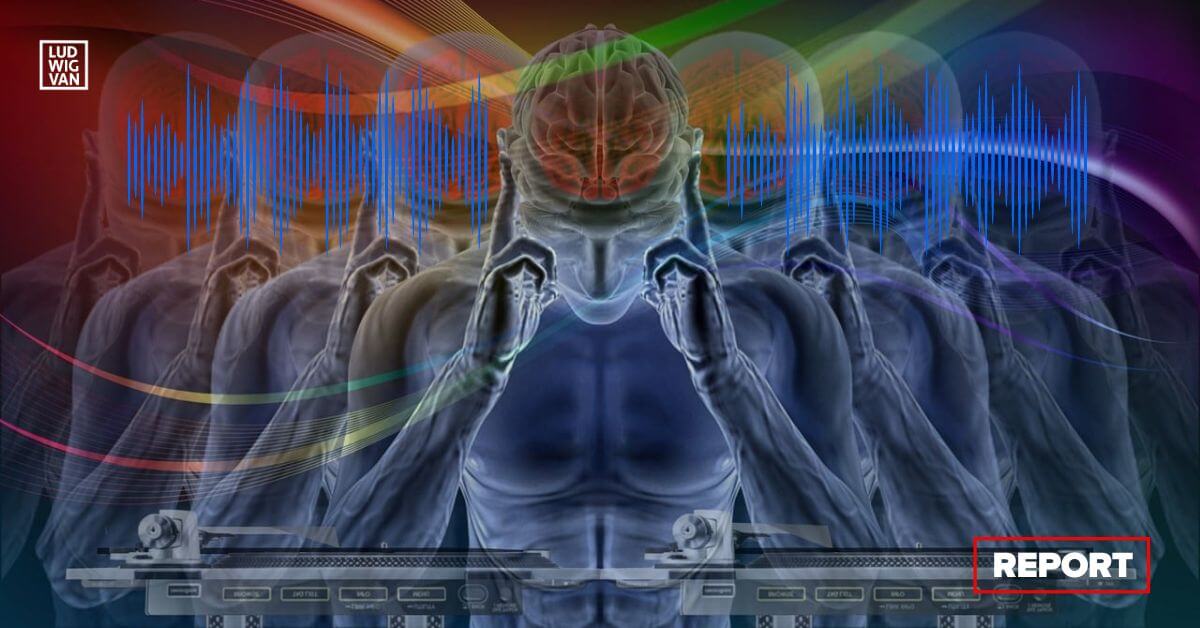
Music exists in virtually every human society in one form or another, and shares certain acoustic features across many modes of expression. It is processed in the brain by specific neural circuits, and that happens irrespective of any musical training.
Just how that all happens, though, remains unclear. That’s the focus of a new study by Korean researchers.
Researchers from the Korea Advanced Institute of Science and Technology used artificial intelligence (AI) to develop a model that produced interesting data suggesting music processing is an innate part of brain development.
Published in the January issue of Nature magazine, the paper is titled Spontaneous emergence of rudimentary music detectors in deep neural networks.
Music is Innate: The Study
The researchers created an artificial deep neural network (DNN), designed to duplicate the function of neural networks in the human brain. DNNs have been used in recent studies to look into brain and neural functioning. The researchers first fed their DNN a series of 17,585 test data of natural sounds, including speech, music, dogs barking, traffic, and so on.
Not surprisingly to the authors, the DNN developed a distinct method of processing music.
When they left the music out of the training data, however, the results were the same.
In other words, without knowing anything about music, the AI model recognized… music (or, more accurately put, basic musical patterns).
Others have suggested that the brain learns to recognize music via exposure. Even before birth, babies in the womb can hear, explaining the way newborns seem to react to music – or so that theory goes. Multiple possible scenarios were examined in the current study, but the data told the same story.
The data for processing music emerges as distinct from any other sound, just as it does in the human brain. Specific populations of neurons respond to music.
What does it mean?
The evidenced that emerged from the study points to the idea that our brains can develop the neural circuits to process music spontaneously. It seems to occur as a natural part of the way the brain learns to process all natural sounds.
The researchers posit that this innate musical processing machinery, driven by evolutionary pressure, would also explain why some non-human species also perceive and react to music. Rhesus monkeys, for example, can discern octaves, and ferrets can perceive two-tone sequences, among others. Neurons in the auditory cortex of all primates respond to pitch and harmony.
At the heart of the research is the notion that adapting to our environment fine tunes specific functions in the brain, such as processing sound. That’s why music is universal.
It’s a glimpse into the innate workings of the brain.
#LUDWIGVAN
Get the daily arts news straight to your inbox.
Sign up for the Ludwig van Daily — classical music and opera in five minutes or less HERE.
- PREVIEW | SUMMER OPERA LYRIC THEATRE Presents Handel’s Xerxes, Mozart’s Idomeneo & Puccini’a La Boheme July 26 To August 4 - July 26, 2024
- PREVIEW | YENSA Festival V.2 Offers Black Flames Performances & Other Ways To Celebrate Black Women In Dance - July 25, 2024
- PREVIEW | Canadian Talent Conspicuous In The Met: Live In HD 2024-25 Season - July 25, 2024



